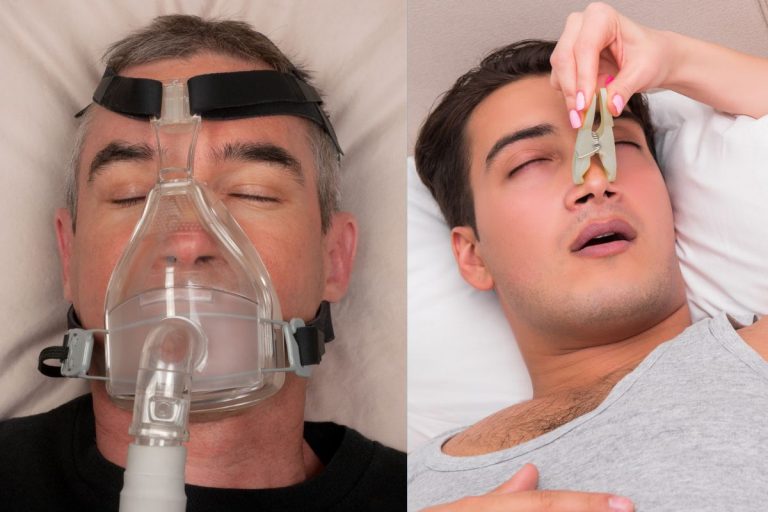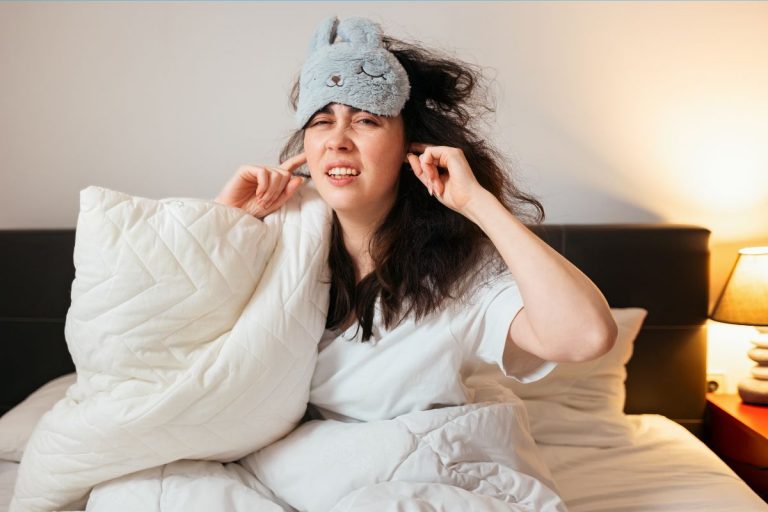Everyone who is even a bit acquainted with the world of beauty products knows the robust yet mellow, floral scent that is lavender. This inviting aroma comes from an infusion of lavender oil, one of the most popular essential oils available today.
However, this aromatic compound does not owe its massive popularity to the sweetness of its smell alone.
Other favorable properties people often attribute to lavender oil include easing anxiety and depression, combating skin conditions like eczema, helping with nausea and menstrual cramps, combating insomnia, and promoting relaxation and sleep.
Check out any list of the most effective essential oils for sleep, and lavender oil is sure to rank high. However, is there any truth to this widespread acclaim of its potency?
Lavender oil is the essence of the lavender plant (Lavandula spp.) One species of this plant, Lavandula angustifolia, is especially abundant in the U.S., occurring naturally in the wild.
Lavender can be used in aromatherapy, applied topically in creams and lotions, or consumed orally as a supplement.
Can Lavender Oil Help You Sleep?
Getting great sleep affects everything from your health, mood, to overall well being, and what if an essential oil can help you achieve that goal?
For those who are familiar with the scent of lavender, realizing that it has some sleep boosting properties isn’t that much of a stretch. The distinct aroma of lavender brings a calming feel that carries on across all types of beauty products, whether it’s in the form of shampoos, lotions, or soaps.
Adding credence to this bit of folk knowledge is the fact several scientific studies point to the efficacy of lavender in enhancing sleep.
In one 2015 study in the Journal of Complementary and Alternative Medicine, researchers found that from a sample size of 79 students, respondents who wore a lavender-infused inhalation patch on their chest at night reported significantly better sleep quality over two weeks.
Furthermore, a more recent study in the Holistic Nursing Practice Journal recorded similar results from observing 30 elderly residents of a nursing home. Here, with the use of lavender aromatherapy, the respondents posted a significant improvement in the duration, quality, and the onset of sleep.
So, does this mean lavender oil is the elixir you need to attain peak sleep quality?
Not quite.
Research on the effects of lavender oil—like with other essential oils, is minimal. However, the fact that lavender is widely accepted as a natural sleep aid, and that all preliminary research into its effects on sleep is positive, is enough to earn its place in our nighttime routine.
Plus, lavender oil brings a distinct, sweet-smelling, and calming scent that is just right for the bedroom and rest time.
How Does Lavender Oil Work for Sleep?
The alleged therapeutic and curative properties of lavender all stem from its effect on the nervous system.
In one review of relevant scientific literature on the topic, the authors found that lavender has a far-reaching influence on the nervous system. In this report, the researchers found that several studies highlighted several impacts of lavender essence on the nervous system. Some potential benefits of this essential oil include acting as a mood stabilizer, analgesic, anxiolytic, anticonvulsive, and as a sedative.
Hence, thanks to its potential sedative and anxiolytic (anxiety-reducing) properties, it is no surprise that lavender can help to put you in a relaxed state, primed for enhanced sleep.
Lavender interfaces directly with GABA, a fundamental neurotransmitter in the brain that helps to decrease activity in the nervous system, consequently reducing anxiety, restlessness, and anger, and promoting relaxation.
Other Related Potential Benefits
The positive effects of lavender extend beyond aid relaxation alone. With lavender oil, you get a unique set of properties that makes it an effective remedy for a wide variety of ailments. Other potential benefits of lavender oil use include:
Pain Relief
In one 2015 study, researchers found that a diluted solution of lavender oil applied topically packed enough analgesic and anti-inflammatory properties to rival the pain relief you get from some pain prescription drugs.
Consequently, you can use lavender to help ease pain, especially those associated with inflammation. Hence, lavender oil can often help with conditions like headaches, toothaches, labor pains, and menstrual pain.
Furthermore, in these situations, lavender can, by extension, increase your chances of getting good sleep.
Note: Lavender Oil is also featured in 8 Best Essential Oils for Each Type of Headache
Inhibiting Menopause Symptoms
Menopause may come with several disconcerting symptoms like hot flashes and heart palpitations, and lavender oil may be what you need to get some relief.
One 2007 study—and a more recent one in 2018, had participants that reported reduced levels of menopausal symptoms after consistent exposure to lavender experts. In the 2018 study, the researchers suggested that lavender oil’s ability to reduce stress levels may be responsible for its effect on symptoms like hot flashes.
Consequently, getting lavender oil aromatherapy, or otherwise applying this essential oil topically, can help women in menopause combat sleeping difficulties that stem from symptoms, restlessness, and anxiety.
How to Use Lavender Oil to Improve Sleep?
Like with other essential oils, there is no shortage of ways to use lavender oil.
You can either apply lavender oil topically by massaging the oil, a combination with other oils, or a lavender-infused lotion into the skin before bed, or opt instead to inhale its essence via several different creative options.
When using essential oils topically, ensure that you dilute them before use, preferably half-and-half with a carrier oil like coconut oil, jojoba oil, or virgin olive oil.
Essential oils like lavender oil typically pack a high level of reactivity, and when you use them in their pure state, they can cause severe skin irritation.
Here are some ideas:
- Add a few drops of lavender oil to your diffuser and leave it running through the night.
- Add a couple drops of the essential oil to your pillow or the collar of your sleepwear shortly before going to bed.
- Spray a few drops of the oil to a wad of tissue or cloth then keep it close to you or underneath your pillow during sleep
- Add a few drops of lavender oil to a warm bath
- Keep a bowl of fresh lavender flower buds on your nightstand before bed
Risks, Warnings, and Precautions
While essential oils are natural and have featured in traditional medicine for a long time, these are still some precautions you must take when using them.
Buying Lavender Oil
The FDA does not regulate essential oils like Lavender oil. Hence, there is no clear cut way to ascertain the quality or contents of a particular product, and there are no official usage recommendations.
Consequently, ensure to only buy lavender oil and other essential oils from trusted sources. We recommend the lavender oil from Plant Therapy, one of America’s largest suppliers of natural ingredients and essential oils.
Using Lavender Oil
Furthermore, apply caution when using lavender oil mixtures topically. You must do a patch test over 24 hours to check for any allergic reaction before applying the oil over a larger area of skin.
It is also essential that you avoid ingesting lavender oil. Swallowing lavender oil, especially in excess, can lead to unpleasant reactions like nausea and an upset stomach.
Special Populations
You should also consult a health professional before using lavender oil topically if you fall into at-risk populations like pregnant women, breastfeeding mothers, children, or people with severe pre-existing conditions.
Interaction with Other Medications
If you take any form of high-effect medication or supplements regularly, you should consider consulting your health practitioner before adding the topical use of lavender to your nighttime routine.
Lavender oil use can cause complications when paired with some medications. For example, the oil may help to lower blood pressure. When combined with anti-hypertensive drugs like thiazide diuretics, it may cause an excessive, potentially dangerous lowering of your blood pressure.
Frequently Asked Questions
What are the side effects of lavender oil?
Some possible side effects of using lavender oil may include skin irritation, nausea, constipation, headaches, or vomiting. If you feel any of these symptoms, discontinue use immediately and consult with your doctor before attempting reuse.
Can you overdose on lavender oil?
Avoid taking lavender orally, whether as tablets or in oil form, except when explicitly directed by a healthcare professional to do so, and even then, preferably under their strict guidelines.
Lavender can directly impact the brain and nervous system, and overconsumption may lead to several possible unwarranted complications.
Is inhaling lavender oil safe?
Yes. Using lavender oil for aromatherapy is the most reliable way to use this essential oil.
Can lavender oil cause breathe problems?
When inhaled, lavender oils can be both relaxing and soothing to your senses and stomach. However, for small children and infants, the opposite is the case as this potent aromatic oil can induce life-threatening breathing problems. Avoid using lavender oil or any other essential oil, aromatherapy with these groups.
Nevertheless, most adults should have no issues inhaling lavender oil, even over extended periods.
Also Read: 7 Best Essential Oils That Will Get You Some Rest (2023 Updated)





